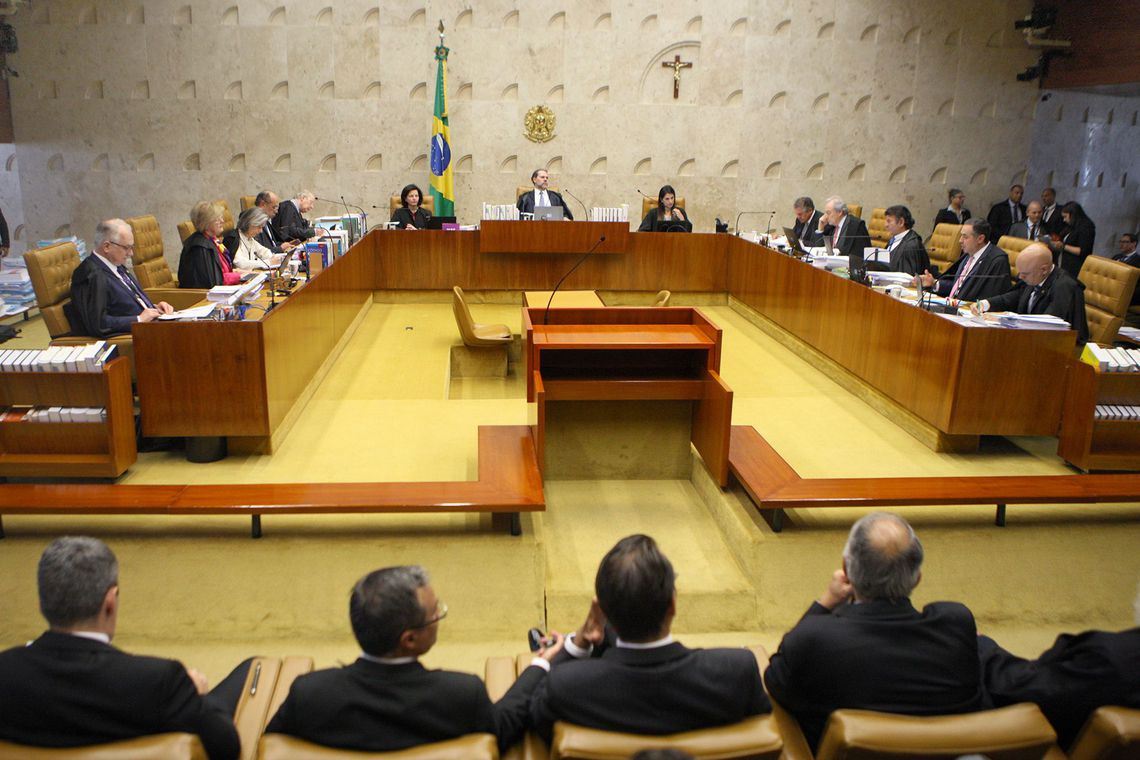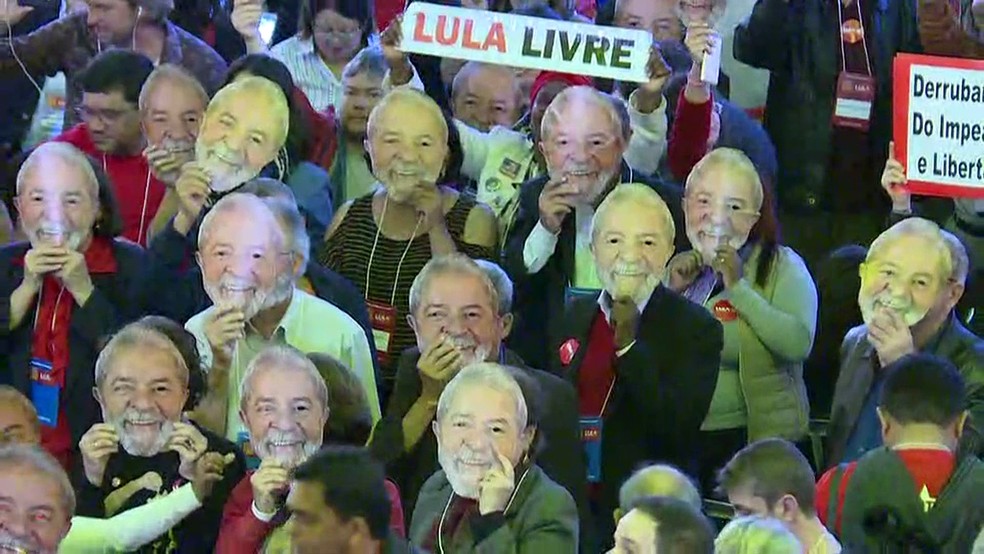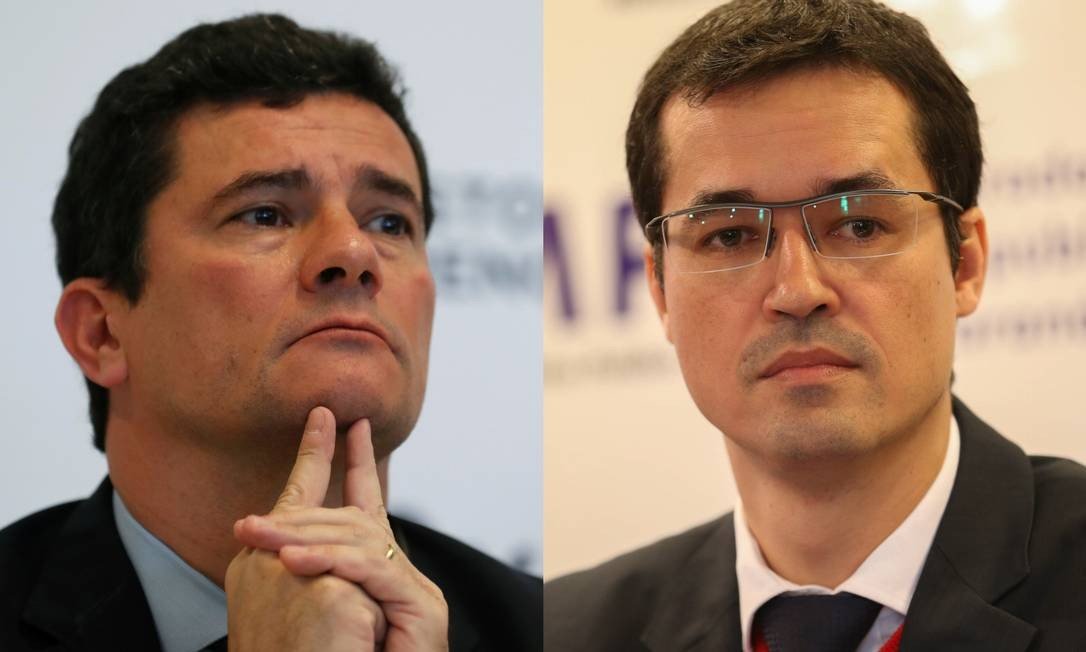RIO DE JANEIRO, BRAZIL – Surrounded by pressure and under alarm from Bolsonarists, the Federal Supreme Court (STF) trial begins today and is expected to last up to three sessions. On the first day, only the court rapporteur and lawyers are expected to speak.

The Supreme Court begins to decide on Thursday, whether or not a criminal whose initial conviction has been affirmed by an appellate court, should begin serving his prison sentence.
The outcome could lead to the release of 4,895 inmates, a group in which there would be 16 prisoners who were sentenced under Operation Lava Jato, including former president Luiz Inácio Lula da Silva, former Minister José Dirceu and former PT treasurer Delúbio Soares.
This will be the sixth time that the Justices have dealt with the issue since 2009. It will be the first time, however, that they will debate the substance of the matter, in other words, the decision now being taken will serve as a guideline for the entire judicial system. The new debate on the issue will take place at a time of Lava Jato’s fragility, which has already experienced setbacks in court and suffers from the erosion caused by the disclosures of private messages between its members obtained by The Intercept.
As with everything that involves Lava Jato – and Lula in particular -, the new trial further stirs up the country’s mood. In an attempt to mitigate the pressure, Presiding Justice liDias Toffoli, who used his power to put the issue back on the agenda, has already anticipated that the trial will not end on Tuesday. Even so, Bolsonarists were alarmed and even intimidated on social media.
Eduardo Villas Bôas, a former Army commander, who last year had virtually charged the Supreme Court to keep Lula behind bars a day before the habeas corpus judgment, on Tuesday made a new statement on Twitter.
“It is necessary to preserve the energy that drives us toward social peace, otherwise the people will fall again into discouragement and an eventual social upheaval,” he said in a message in which he urged institutions to persevere in the fight against corruption.
Although the justices may change their position, Rosa Weber’s vote will likely be decisive in this matter. Of the last five trials involving the issue, she took part in three. In two of them, held in February and October 2016, she declared she was contrary to beginning prison term after one appeal of the conviction.

In the other, in April 2018, when she examined a habeas corpus brought by Lula’s defense, she changed sides. She stated that, at the time, she was following the case law defined by the STF until then and, therefore, voted in favor of the enforcement of the sentence. Thus, a new majority was formed. At the time, Lula was prevented from leaving prison by a vote of six to five.
Now, whatever the 11 justices decide will become new case law and a precedent. In other words, Weber would no longer use the argument explained above (that of the formed majority), since this would be a new decision on the merits.
Among the other Court justices, the remaining votes are somewhat clear. Celso de Mello, Marco Aurélio Melo, and Ricardo Lewandowski have always stated to be against the serving of sentence after convictions affirmed by appellate courts.
Cármen Lúcia, Luiz Fux, Roberto Barroso, Edson Fachin and Alexandre de Moraes are in favor. Justices Dias Toffolli and Gilmar Mendes were once in favor of serving the sentence, but in their latest opinions showed a change in attitude and ended up voting against the execution of the sentence until appeals are exhausted.
Apparently, there are only two possible decisions: to allow the enforcement of the sentence after conviction by an appellate court, or to release all those who still have appeals pending in court. But behind the scenes in Brasilia, Dias Toffoli has circulated a third possibility, which would be a kind of modulation, even if this is not its technical name.
He believes that it is possible to decide that imprisonment may occur after a conviction has been confirmed by the Superior Court of Justice (STJ), a third-level court. This proposal has not yet been officially presented. It is expected only next week, when the Justices will, in fact, present their votes.
There is said to be a tacit agreement among the 11 justices that none of them will ask for a review of the record, which would suspend the hearing. As the trial has details that impact a large number of detainees, in addition to those of Lava Jato, a three-session trial is expected to take place–Thursday the 17th, and October 23rd and 24th.

The mobilization
In addition to the political dispute that could result in Lula’s release, who is still the main leader of the Brazilian left-wing, the issue is sparking a stir among judges, members of the Prosecutor’s Office and lawyers. The issue is not a minor one.
Opponents of imprisonment after conviction by an appellate court say that it violates the principle of presumption of innocence: if the Brazilian system was imagined with four instances, then the defendant is entitled to appeal to all of them before the sentence begins.
Those in favor say that the system has excessive levels of motions and appeals, a rarity in the world and that this only contributes to the impunity of the wealthiest who have the means to appeal in the expensive and slow Brazilian legal process.
The public defenders decided to debate the issue officially, which is why bodies such as the Institute for Defense of the Right to Defense, the Brazilian Institute of Criminal Sciences, and the Institute of Brazilian Lawyers joined the proceedings a amicus curiae – when a person or organization is not directly involved in a trial has the right to express its view.
On the other hand, bodies representing the prosecutors or judges expressed themselves by means of notes or statements to the press.
This week, after Toffoli announced the trial agenda for Thursday, the National Association of Members of the Prosecutor’s Office (CONAMP), stated that, if the court overturns the understanding it has maintained since 2016, there will be a setback.

The National Forum of Criminal Judges (FONAJUC) was yet another example. In a note, the body said that Brazil runs the risk of becoming “the only country of all United Nations member states not to allow imprisonment after conviction in the first or second instance, with serious consequences to Brazilian society”.
In the document released to the press, the magistrates eventually used an exaggerated number, saying that 164,000 prisoners could be released with an eventual decision against second instance detention. The forum was ultimately led to error because in a recent decision, the president of the STF himself, Dias Toffoli, quoted inaccurate data. According to him, 190,000 prisoners could be released.
On Wednesday, however, the National Council of Justice (CNJ) stressed that as the ADCs (Associations for the Protection of Prisoners) deal with pre-trial detention, there would be in this universe, “only 4,895” prisoners who have had their sentences confirmed by Federal Regional Courts and Courts of Justice.
In an attempt to address a potential defeat, the pro-Lava Jato and anti-Lula wing in Congress began to move. In the Chamber of Deputies, the first reaction to the STF movement was made by the president of the Constitution and Justice Commission, Felipe Francischini.
For this week, he outlined the analysis of a proposed constitutional amendment (PEC) that authorizes the enforcement of the sentence after judicial confirmation of a lower court conviction. Despite attempted obstruction by the opposition parties, such as PT and PSOL, the report ended up being read and should be voted on in up to two weeks.
Even trying to speed up the vote in the CCJ, the consensus is that the vote on the PEC, authored by Deputy Alex Manente, will be completed in the Chamber of Deputies by the end of the year. If approved, it will still proceed to the Senate. That is, it would not become law in a short time.
Source: El País

